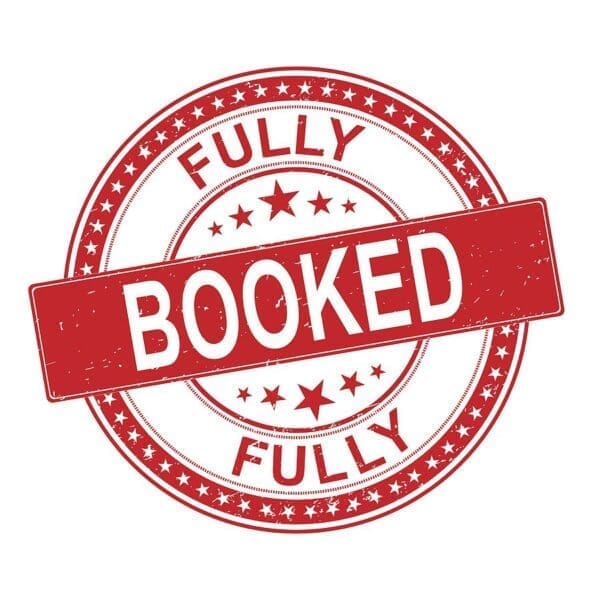 Overbooking in hotels can be both good and bad, and it most certainly does get ugly, particularly with those on the receiving end of a nudge into another property or location.
Overbooking in hotels can be both good and bad, and it most certainly does get ugly, particularly with those on the receiving end of a nudge into another property or location.
For operators, the issue of overbooking in the hotel industry might seem a bit taboo, and the naughty factor increases when overbooking is done knowingly. However, and as we’ll consider, it may be more of a necessary evil than an actual one.
While there are lots of valid reasons for overbooking in hotels, it may still feel challenging when wondering how to deal with overbooking and its fallout. Let’s consider the good side of overbooking, then take a look at why overbooking hotel rooms can be bad, and lastly, how any hotel owners or operators can avoid the inevitable ugliness when overbooking in hotels occurs.
The good
Why do hotels overbook?
Overbooking occurs when the total number of rooms for a specific window of time exceeds the actual number of rooms available. Reservations have exceeded 100%, in other words, and overbooking in the hotel industry is usually done as a revenue management strategy.
Revenue management is a long-standing system in the travel industry (particularly air and accommodations segments). It boosts room revenues and makes the very most out of total hotel capacity. Of course, this is where a bit of that badness enters the equation because one of the main reasons for overbooking in hotels is that management is “hedging” against no-shows or cancellations.
Though it is simultaneously a way to hit 100% occupancy, it runs the risk of missing the mark and forcing management to then determine how to deal with overbooking at that moment. And, how, most wonder, does a hotel owner or operator know the degree to which they can hedge?
Historical and statistical data is required to begin overbooking within a safe range and with good results. This is data that the hotel’s property management system should be recording and reporting when required, and includes:
- Total inventory
- Confirmed reservations
- No shows (this is going to be based on historical data related to guest profiles)
- Guaranteed reservations (prepaid or secured with a credit card)
- Anticipated cancellations (this is going to be based on historical data related to guest profiles)
- Predicted under and overstays (this is going to be based on guest data as well as regional and seasonal expectations)
- Walk-in allowances (this will require historical and statistical data)
- Overbooking by room type (some rooms are in higher demand, and some less, and this must be used when overbooking is put to use strategically)
If planning to use overbooking, this array of data must be available and then evaluated in an RM system to gauge the degree or percentage to which the property can exceed capacity.
The bad
There are, of course, the proverbial downsides to the scenario, and some of them may be very difficult to overcome.
When overbooking in hotels is done intentionally, the risks include:
- Negative customer experiences that lead to negative word of mouth
- Loss of potential revenue from upsells, ancillary services, and in-room upgrades
- It may lose future reservations with customers that did get a room but do not agree with overbooking of hotel rooms
- Negative reviews on key sites like Facebook or an OTA like TripAdvisor, which cannot be erased, and which may require costly reputation management intervention in the future
- Additional staff training to ensure that overbooking is handled properly
- Resources expended on transitioning guests without accommodation to the partner hotel
- Loss of customer loyalty
- Risk of denied services from OTAs and channels if overbooking occurs too often
- Impact of costs of compensation and refunding
There are downsides to overbooking in the hotel industry, and they can easily go from bad to outright ugly. As a simple example, the customer who stands at the front desk shouting and making a scene must be handled properly. Not only can they end up leaving all kinds of harmful, negative reviews, but they may influence those around them, worsening the situation with reputation damage.
Think of it as a domino effect. The carefully arranged tiles stand upright until one of them is forced to totter and fall over (this is the disruption caused by the overbooking and the need to walk a guest to another property). The loss of that one tile is not problematic unless some of the impacts of its removal cause the nearby tiles to fall.
In this example, let’s say that the staff at the front desk has no training in how to deal with overbooking. They may handle it poorly and say the wrong things. This means you now have a dissatisfied customer. They may tell others, and neighbouring dominoes begin to fall. They use the feedback area of your website and your social media pages to leave horrible comments. They discourage others from booking, and they describe your hotel as unprofessional.
All of these things can greatly harm the hotel’s reputation and lead to lost reservations and revenue.
Do hotels overbook? Yes, and many do it intentionally as a revenue management tactic (as mentioned above). This, however, is a step that should be used only by experts and those who are fully informed using all available data. There are good reasons for overbooking in hotels, but they are only good (not bad and ugly) if they can almost eliminate the risks of guests arriving at no available accommodations.
How to improve “the ugly” outcomes
Overbooking hotel rooms is risky, but modern technologies can help eliminate the risks of such unwelcome blunders (if they are blunders). A PMS or property management system with a built-in channel manager or integration with any channel manager can greatly relieve this scenario. This is because it can take real-time data in the system (that relating to secured reservations and transmit it to all channels.
This means the listings on OTAs have no risk of being double booked by the listings through the website’s online booking engine. These integrated booking systems communicate and update constantly, showing only rooms that are available.
How to de-ugly overbooking
While the answer to the question of “Do hotels overbook?” is an unfortunate “yes,” a cloud-based PMS can ensure that overbooking does not occur accidentally. With its real-time data, ability to help evaluate information, and its RM integration capabilities, it can be a good resource for those who use overbooking in the good or bad ways and always helps avoid any ugliness.
A PMS system with integrated channels ensures you have the most dynamic pricing possible, cutting down on the need to lean towards overbooking. All of your inventory can update in real-time and across all channels, putting you in direct competition with major chains. Adjust pricing up or down based on the current trends, and erase any need to gamble on overbooked inventory.
Because there are many automated and customer experience-oriented features, including enhanced check-in and checkout, you minimize risks of unpleasant exchanges at the front desk. Instead, the PMS allows guests an easy, mobile check-in and check-out process, allows staff to focus on making the entire visit pleasant and appealing, and ensures that every guest (or potential guest) is treated in a way that is always good.















